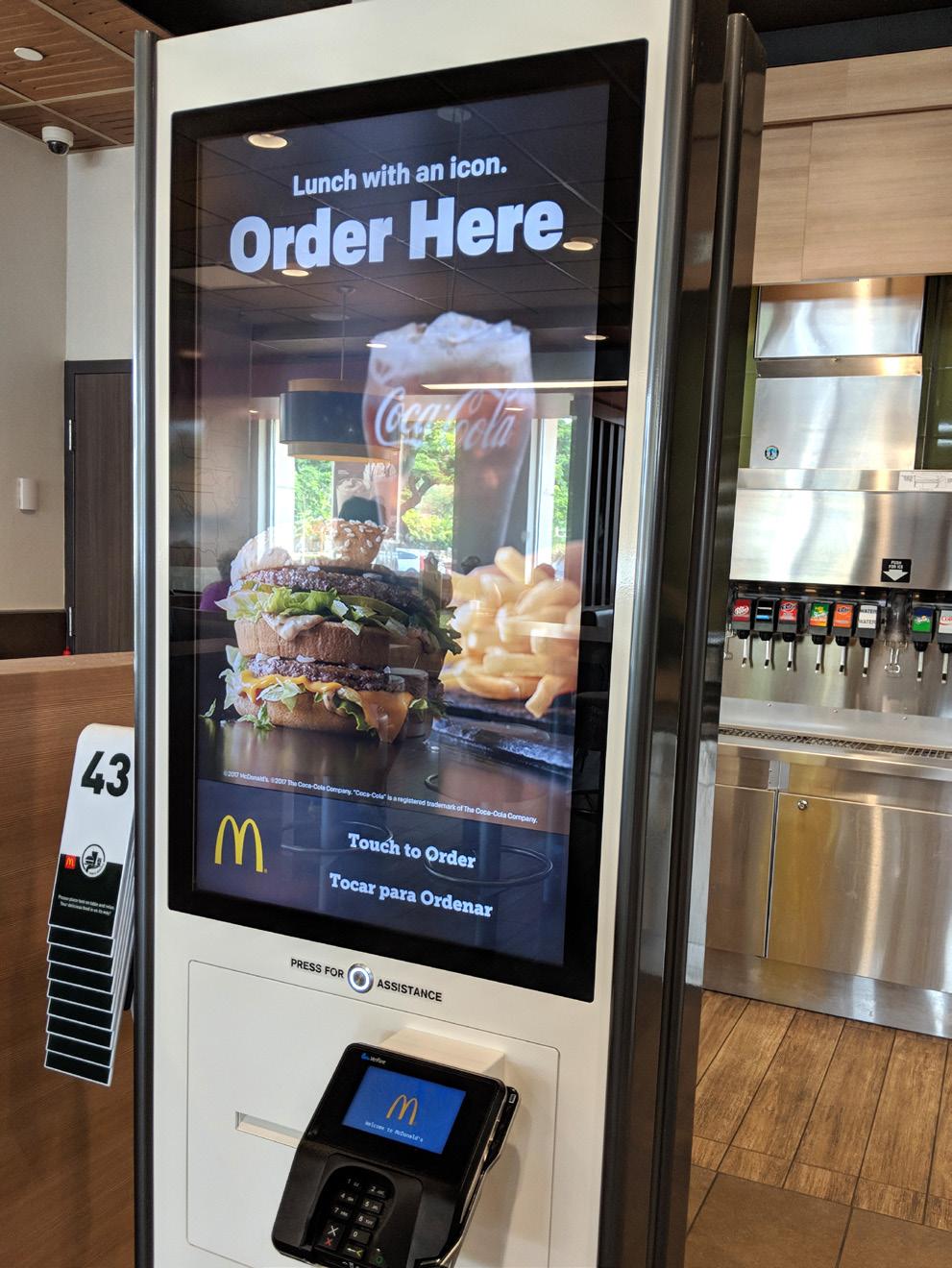
3 minute read
Harnessing the Power of AI to Help Hospitality Businesses
In an era when technology is revolutionizing various sectors, the hospitality industry is embracing artificial intelligence (AI) to enhance customer experiences, streamline operations, and drive business growth. The integration of AI technology in restaurants, hotels, and other establishments has the potential to help hospitality businesses deliver even better service while improving the bottom line.
Understanding AI and Large Language Models
Advertisement
AI refers to computer systems or machines that mimic human intelligence and perform tasks that typically require human cognitive abilities. These systems can process vast amounts of data, learn from it, and make decisions or generate responses based on that knowledge. AI technologies, such as machine learning, natural language processing, and neural networks, enable systems to improve performance over time through data analysis.
One specific type of AI that has gained significant attention is large language models (LLMs). LLMs are sophisticated algorithms trained on extensive datasets to understand and generate human-like text. They excel at tasks like language translation, content generation, and text-based conversations. For example, OpenAI's ChatGPT is a popular LLM that can engage in interactive and context-based conversations.
AI Revolutionizing Customer Engagement
AI-powered chatbots are transforming the way hotels and restaurants interact with their customers. Companies like SOCi are using AI and machine learning to automate marketing tasks, including responding to customer reviews and managing local listings. With the help of OpenAI's ChatGPT, chatbots can instantly respond to customer queries and provide human-like interactions, ensuring prompt and efficient customer service.
In addition, AI is making it easier for customers to discover and connect with local businesses. Platforms like Yelp are leveraging AI and large language models to surface smarter suggestions and insights based on user search intent. By using LLMs, Yelp can quickly analyze vast amounts of review data and provide relevant information, helping users make informed decisions about where to dine or stay.
Automation and Efficiency
AI-driven automation is revolutionizing operations across the hospitality industry. McDonald's, for instance, introduced its first fully automated restaurant, allowing customers to access their meals without any human interaction. Similarly, Wendy’s is testing the incorporation of AI-powered chatbots for drive-thru orders to improve customer service and address labor shortages. These advancements not only provide a faster and frictionless experience, but they also free up human resources to focus on more complex tasks.

Hotels around the world are using AI to automate booking, contactless check-in, and other repetitive tasks. AI is helping lodging establishments provide room service, offer recommendations, and answer guest questions. Guests can quickly and easily access a hotel’s AI-generated services 24/7 through texting. AI helps streamline housekeeping and maintenance, and improve demand forecasting and inventory management. Incorporating AI into operations frees up staff, allowing them to focus on providing personalized guest service.
It will always be important to strike a balance between the benefits of technology and the human touch that defines the hospitality experience. By embracing AI, the hospitality industry can unlock new opportunities and create a future where technology and human interaction coexist harmoniously to deliver exceptional service.
The Future of AI in Hospitality
Enhanced Visual Experiences
The hospitality industry relies heavily on visual appeal, particularly when it comes to showcasing food and facility amenities. AI is stepping in to enhance the visual experience for customers. Startups like Swipeby are using AI text-to-photo technology to generate custom images of menu items based on descriptions. This technology allows small restaurants, which may not have the resources for food photography, to showcase their dishes in a visually appealing way. Studies show that high-quality food photos can boost orders on delivery apps, further highlighting the potential impact of AI in driving revenue for businesses.
Event planning tools that incorporate AI are helping hotels and other event venues create 3D diagrams of event spaces, host virtual walkthroughs, and much more. AI also allows conference organizers to maximize their marketing efforts while streamlining production.
Artificial intelligence holds immense potential for the hospitality industry. As the technology continues to evolve, we can expect AI to play an increasingly prominent role in personalization, itinerary building, and optimizing operations. Travel agencies, airports, and hotels are already exploring the possibilities of AI to enhance the customer journey and provide real-time solutions. However, it’s important to strike a balance between the benefits of AI and the importance of human connection, ensuring that AI functions as a tool to augment human capabilities.
By leveraging AI-powered chatbots, visual technologies, automation, and more, businesses can enhance customer engagement, streamline operations, and improve overall efficiency. It will always be important to strike a balance between the benefits of technology and the human touch that defines the hospitality experience. By embracing AI, the hospitality industry can unlock new opportunities and create a future where technology and human interaction coexist harmoniously to deliver exceptional service.










